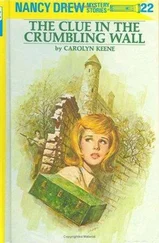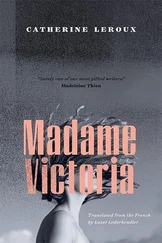Simon wakes up and checks his alarm clock: 3:20 p.m. He mechanically turns on the TV. A glowing female announcer declares the weather will be dry with a gentle breeze. He lets her gush while he puts the water on to boil, and then he comes back and settles into the sofa with a pale cup of tea and some porridge. The weather report gives way to the news; the local news begins with a shot of the always majestic Golden Gate. Below the bridge the Coast Guard is hoisting a body out of the water. The man threw himself into the Bay at sunrise. Before jumping he apparently chalked a message on the pavement: Freed from my fate .
“Poor guy,” Simon mutters.
He hears the sound of knocking and believes at first that it’s coming from the TV. But when the sound grows more insistent, Simon goes to the door in disbelief. No one has knocked on his door since he moved in here. He slips the door chain without giving it any thought.
When after months of separation you see a person with whom you previously had spent a great deal of time, there is always something peculiar about her appearance. Carmen has not changed, but her hair tied in a ponytail seems longer and drier than ever. Her chin looks pointier, her muscles harder. Her lean chest now appears to have a hollow, a concave space where someone might plant his cheek, or fist. There are tears streaming down her face.
Without asking permission she walks in and collapses on the couch. Her sobbing rises when she sees the images of the events below the bridge. Simon does not wonder at how easy it is for him to sit down beside her, to wrap his right arm around her, to hold his sister in face of the winds working to uproot her from the clear, measurable world that she has always dealt with equably. Without speaking, they return to the original magma of their story, the wound that made them into steadfast allies.
After a few minutes Carmen finally opens her mouth.
“It’s Marcus. He’s the one who jumped off the bridge. It’s my fault.”
It doesn’t even occur to Simon to ask who Marcus is or what in the world Carmen might have done to drive him to suicide. He sighs and gently strokes her hair.
“If only we still had the cat.”
Carmen lifts her bloodshot eyes toward him.
“He’s at my house, on the mantel. I don’t know what I’d do without him.”
He chose the Sutro Baths, as if this place explains everything. At least it has helped to loosen his tongue for the first time in months. Carmen listens in amazement to Simon’s account of his divorce, his daughter’s double life, and his search for Roberto Aurellano. While he talks, Simon mechanically thrusts his finger into the holes dug by the crabs. When he was small, Carmen had him believe that under the sand was a crab-controlled warren of tunnels and galleries, which could cause the ground to collapse. The boy would walk on tiptoes and fling every crustacean he managed to get hold of into the surf.
Carmen in turn relates her experiences of the past few of months: the Death Race, Magenta Lopez’s urn, meeting Marcus. Simon tries to reassure his sister, who is convinced she reopened her friend’s wounds by bringing up his family drama.
“He lived with that suffering on a permanent basis. It’s the kind of thing that haunts a man, and he can’t forget it even for a second. Whatever you told him had no bearing on his decision.”
A thin smile finally forms on Carmen’s lips.
“I’m so happy to have found you again, brother of mine.”
Simon gazes out to sea and squeezes his sister’s hand.
“Me too. I’m sorry, Carmen.”
Carmen sweeps the air with her hand to brush away her brother’s remorse. As the light starts to wane they find a spot on the beach and set about surrounding themselves with sand walls. As children they made this their ritual: as soon as they set foot on the beach they would build a canoe around them and play at braving the incoming tide and the seagulls with their imaginary paddles. This time, however, they make no attempt to row. It is enough just to drift.
“I guess we’ll never really understand where we come from.”
Carmen doesn’t take her eyes off the pointed prow to which she is putting the finishing touches.
“Is it really so important, Simon? You spent more than forty years next to your birth mother. You know more about your true origins than I ever will.”
Simon turns around, as if to make certain no ghosts in tailcoats are hanging around the baths.
“That’s the point. I was hoping to be something other than Frannie’s son.”
The light goes down in the prodigious riot of colour exclusive to the Pacific Ocean, its heat, its monsters, its vortex of plastic waste, and its untamed islands soon to be swamped. With the sun now just a golden rib, the brother and sister scan the horizon looking for the famous green flash that appears just as the day star slips away to present a new morning to another continent. Carmen thinks about the pioneers who discovered this spectacle, about the sensation of standing at the world’s edge that must have overwhelmed them; it would never leave them again but would cling to their thoughts in prayer, in toil, even in their last resting place. As for Simon, for the first time in months he imagines himself embracing a woman, here, at the mercy of the wind that would add the taste of salt to their kiss. He opens his hands to the air laden with mist and microscopic algae.
The crash of the breakers on the shoreline grows stronger and the roar makes their outstretched legs tingle at the bottom of the sand canoe. The day moves off into the distance, and Carmen and Simon start speaking Spanish, and German, the language they learned in school so Frannie would not understand them, and then various dialects, invented codes, creoles of sad children, until they are repeating themselves, unsaying what they have said, re-Christening themselves. The scent of the nearby woods arrives on the offshore breeze and is accompanied by the noise from the road, the whoosh of passing cars blending with the murmur of the waves in an elusive refrain. On top of this comes a rumble like a deep explosion.
The fierceness of the elements makes it impossible for them to quickly grasp what is happening. Only when their canoe comes alive do they realize the ground is shaking. Suddenly they are shooting down rapids, they are riding a sand storm. Everything is in flux and they have no paddles.
For the first minute they stay calm. But as the quake gains in amplitude and persists, fear wells up inside them. Something enormous is shifting under their feet. The continental beast is turning in its sleep; one tectonic twin is shoving away the other. Simon moves closer to Carmen and presses her hand. Night has fallen; it’s hard to see anything but silhouettes. Already, the landscape appears to have changed, with new ruins added to the old, but they cannot be sure of this.
The tremor lasts almost five minutes. When the ground stops moving, the brother and sister have formed into a compact ball that refuses to be undone. The noise of the waves seems twice as loud as before, and a furious commotion has latched onto the air. In the distance they can hear sirens and voices screaming, but around them, no one, no movement of living things. Clasping each other in the wet sand, they are incapable of standing up, of taking stock of the damage, of deciding to head back to the city to help those who are left and to mourn the others. Tonight the fault has spoken, perhaps once and for all. Perhaps the coast has slid into the Pacific never to emerge again; perhaps an entire civilization with its myths, its excesses, its violence, and its poetry has just been engulfed. It already doesn’t matter. Carmen and Simon, their eyes fixed on the sea, are waiting for the wave. If part of the world has fallen into the ocean, out of it will surge an equal part of water. Archimedes’ laughter reaches them while, far away, oceanic shadows bare their teeth, the grin of those that will subdue everything.
Читать дальше











